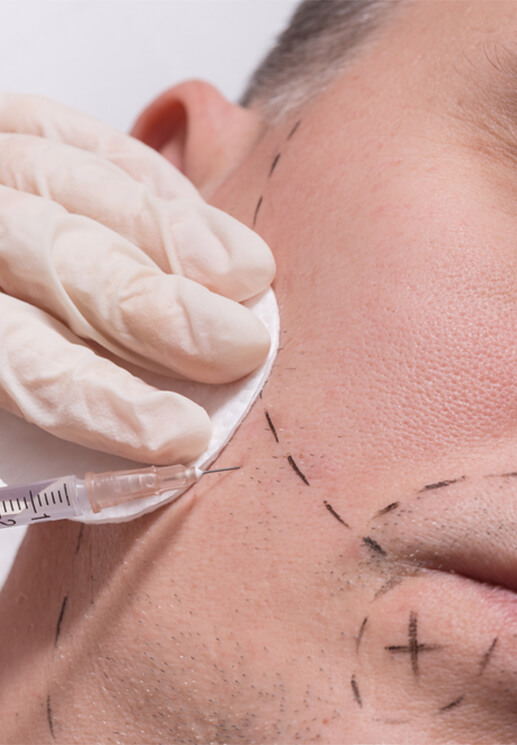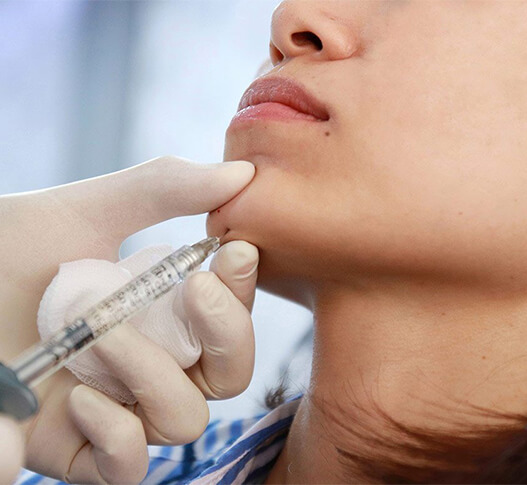Jaw Surgery in Turkey (Orthognathic Surgery)
Jaw Surgery in Turkey (Orthognathic Surgery)

A slight jaw modification can greatly improve many aspects of life, such as facial aesthetics, chewing and speech. Thanks to currency exchange, you can opt for jaw surgery in Turkey and experience a luxurious treatment abroad.
Jaw surgery, also known as orthognathic surgery, is performed to correct abnormalities in the jaw bones or teeth. It adresses problems realted to bite, facial asymmetry, or difficulty chewing or speaking.

Depending on your circumstance and the desired results, one method might be better than another. While the decision is always yours, it is important to consult several experts, get second opinions and make independent research. Here are the main types of jaw orthognathic surgery in Turkey and when they are best applied.
Maxillary osteotomy involves cutting and repositioning the upper jawbone to correct dental and skeletal abnormalities, such as a receded or protruding upper jaw, crossbite, or open bite. It is specifically undergone for the upper jaw.
Mandibular osteotomy is a lower jaw surgery, it involves repositioning the lower jawbone (mandible) to correct dental and skeletal abnormalities. It is recommended if you have an underbite, overbite, or facial asymmetry.
Bimaxillary osteotomy involves repositioning both the upper jawbone (maxilla) and lower jawbone (mandible) to correct dental and skeletal abnormalities. This procedure may be recommended for people with a significant overbite, underbite, or facial asymmetry.
Genioplasty involves reshaping the chin to improve its position and appearance. This type of surgery can be used to correct a receding or protruding chin, facial asymmetry, and difficulty with biting or speaking.
TMJ (temporomandibular joint) surgery is performed to treat disorders or conditions affecting the jaw joint and its associated structures. TMJ disorders can cause significant pain, discomfort, and dysfunction in the jaw, face, neck, and ears.
While undergoing jaw surgery can bring many benefits, patients must meet a series of criteria that may include changing life habits. Eligible patients are highly recommended or required to meet at least some of the following:
Good oral health: Patients should have good oral hygiene and healthy teeth and gums. Cavities, gum disease or infections should be treated prior.
Good general health: Certain medical conditions could increase the risk of complications, as well certain contraindicated medication.
While undergoing jaw surgery can bring many benefits, patients must meet a series of criteria that may include changing life habits. Eligible patients are highly recommended or required to meet at least some of the following:
What are the benefits of having Jaw surgery?
Certain people should not undergo jaw surgery in Turkey. Others don’t want. Others can’t. Others might have jaw surgery but it will not make such a big difference, while others will experience the following benefits like a true before and after:
✅ Improved dental function
✅ Enhanced facial aesthetics
✅ Better speech function
✅ Improved airway
✅ Improved confidence and self-esteem
✅ Improved oral hygiene

How much does Jaw surgery cost in Turkey?
There are many different kinds of jaw surgery and they differ in price greatly. You may ask us for a price cross-comparison or check our table below to get a more precise estimate as to how much jaw surgery costs in Turkey.
Depending on the clinic, surgeon, type of surgery, the price of jaw surgery in Turkey can range from $3000 to $5000. This is the all-inclusive medical travel plan that remains relatively 60-70% cheaper than in Europe or the US. It includes all of the following:
• Full hospitalization fee
• Complete surgery, anesthesia and medical services with no hidden costs
• 4/5* hotel accommodation for your whole stay
• All inner-city transfers included with a private driver
• Aftercare private nurse at the hospital and hotel
• All required medication
• 12-month follow-up
It is also recommended that you research and select a qualified and experienced maxillofacial surgeon in Turkey who can perform the surgery safely and effectively. It may be helpful to read reviews from other patients and to schedule a consultation.
Should you want to receive a full-out medical travel plan, including the whole cost of jaw surgery in
Turkey, we can create one for you for free:
How to Prepare for Jaw surgery
Getting the best results is a team game. From our side, we guarantee the best medical treatment, softness, pain-free and results-oriented, while you will make sure to follow pre- and post-op instructions as best as you can. Here are some of our best recommendations for the pre-op period:
• Plan time off work: A week off work is the time you have to stay with us in Istanbul to ensure the best recovery. Make sure you plan ahead and arrange for any necessary time off!
• Stop smoking: Smoking can increase the risk of complications during and after surgery. So stop smoking for at least a few weeks!
• Oral hygiene is key: Be sure to brush and floss regularly!
• Stay healthy: Eat a healthy diet, exercise regularly, and get plenty of rest in the days leading up to the surgery!

Recovery Process
Recovery Process
Research suggests that, in some cases, aftercare can make up to 50% of end results. While surgery is the most delicate, technical, and most important part, it is important to have a realistic expectations of what jaw surgery actually is, and know what you should do at the other side of it. Here are some general guidelines as to what to expect during the recovery period:
• Pain and discomfort: Anesthesia is there for a reason, but you will still feel some aftereffects. No worries, your surgeon will prescribe pain medication to help manage discomfort.
• Restricted diet: You will need to follow a diet of soft foods or liquids. This will give your jaws time to heal and avoid chewing or biting!
• Oral hygiene: Good oral hygiene is crucial to prevent infection. Your surgeon will provide specific instructions.
• Follow-up: You will need to attend all follow-up appointments. No excuses!
• Rest and recovery: Get plenty of rest and to avoid exercise.


You Should Avoid
This After Jaw Surgery
After your jaw surgery in Turkey, it is important to avoid certain activities that can disrupt the healing process and increase the chance of complications:
❌Physical activity: This can help prevent bleeding, swelling, and other complications!
❌Using straws: Sucking on a straw can create negative pressure in the mouth and increase the risk of bleeding!
❌Touching or licking the surgical site: Whether with your tongue or fingers, it increases the risk of infection.
❌Sleeping on your side: Sleep on your back with your head elevated for several weeks after jaw surgery.
Is jaw surgery dangerous?
Jaw surgery is generally considered as a very safe procedure when it is performed by a qualified andexperienced surgeon. Some potential risks of jaw surgery may include:
- Insatisfaction with results
- Bleeding
- Infection
- Anesthesia reaction
- Nerve damage
- Swelling
- Breathing problems
- Discomfort
Even though surgical complications take place very rarely, risks and complications can happen and you should carefully consider such fact. You will be asked to sign a consent form before surgery, it is important to discuss these details with your surgeon before undergoing surgery.

The complete surgical procedure is performed under anesthesia, making it painless.
Jaw surgery can be a complex and invasive procedure, and typically requires a period of recovery time during which patients will need to follow a specific diet and avoid certain activities. However, it can also be highly effective in improving the function and appearance of the jaw and teeth, and can have significant benefits for a person’s overall quality of life.
There are 3 main elements making surgery in Turkey much more affordable than in other European countries. First, the currency exchange difference. Second, public subsidies to the medical sector, which has a huge importance in Turkey. And lastly, strong competition between the clinics.
The answer fully depends on your location, your budget and many considerations. What we can guarantee, is that jaw surgery in Turkey costs up to 70% less than in Europe for the same quality treatment.
If it is unnecessary, yes, it can be a terrible idea to undergo jaw surgery. If you actually require it, however, you can experience a great boost in your quality of life.
While jaw surgery does not change your smile directly, it can indirectly lead to create a change.
While there is no precise age that is considered too late to undergo jaw surgery, most patients are not older than 65, and many surgeons may find surgery is probably better to avoid after such age.
Generally, jaw surgery is not recommended until the jawbones have stopped growing, which typically occurs in the late teenage years or early twenties. However, in some cases, jaw surgery may be recommended at an earlier age to address severe bite problems or other orthodontic issues.
Most of our patients find themselves in normalised conditions 1 week after surgery.
While jaw surgery is generally regarded as the most effective way to correct a crooked jaw, there are some non-surgical options that may also greatly help. For example: orthodontic treatments, jaw exercises or dental restorations such as crowns, bridges or veneers.
In some cases, the jaw can be realigned without surgery using orthodontic treatment and other nonsurgical methods. For example: orthodontic treatments, orthognathic appliances or jaw exercises.
Yes, it is one of the main causes for surgery.
The failure rate can widely differ from one clinic or surgeon to another. Given the highest levels of quality, the complication rate is usually 1-5%.
If you do not chew screws after surgery, results might last for a lifetime, yes!
While this may completely depend on the kind of surgery, the length of the operation is usually between 2 and 6 hours.
It may be the case that your clinic will ask you to pay partly in cash, yes.
Yes, some big celebrities have even shared their experience with surgery, such as Bella Hadid, Angelina Jolie, Christy Turlington and Shia LaBeouf.
All types of orthognathic surgery (jaw surgery) aim to improve the functional and aesthetic aspects of the jaws and teeth. To determine what is the most stable type of surgery for you, we would need to examine you with a free online medical consultation.
The complete surgical procedure is performed under anesthesia, making it painless.
Jaw surgery can be a complex and invasive procedure, and typically requires a period of recovery time during which patients will need to follow a specific diet and avoid certain activities. However, it can also be highly effective in improving the function and appearance of the jaw and teeth, and can have significant benefits for a person’s overall quality of life.
There are 3 main elements making surgery in Turkey much more affordable than in other European countries. First, the currency exchange difference. Second, public subsidies to the medical sector, which has a huge importance in Turkey. And lastly, strong competition between the clinics.
The answer fully depends on your location, your budget and many considerations. What we can guarantee, is that jaw surgery in Turkey costs up to 70% less than in Europe for the same quality treatment.
If it is unnecessary, yes, it can be a terrible idea to undergo jaw surgery. If you actually require it, however, you can experience a great boost in your quality of life.
While jaw surgery does not change your smile directly, it can indirectly lead to create a change.
While there is no precise age that is considered too late to undergo jaw surgery, most patients are not older than 65, and many surgeons may find surgery is probably better to avoid after such age.
Generally, jaw surgery is not recommended until the jawbones have stopped growing, which typically occurs in the late teenage years or early twenties. However, in some cases, jaw surgery may be recommended at an earlier age to address severe bite problems or other orthodontic issues.
Most of our patients find themselves in normalised conditions 1 week after surgery.
While jaw surgery is generally regarded as the most effective way to correct a crooked jaw, there are some non-surgical options that may also greatly help. For example: orthodontic treatments, jaw exercises or dental restorations such as crowns, bridges or veneers.
In some cases, the jaw can be realigned without surgery using orthodontic treatment and other nonsurgical methods. For example: orthodontic treatments, orthognathic appliances or jaw exercises.
Yes, it is one of the main causes for surgery.
The failure rate can widely differ from one clinic or surgeon to another. Given the highest levels of quality, the complication rate is usually 1-5%.
If you do not chew screws after surgery, results might last for a lifetime, yes!
While this may completely depend on the kind of surgery, the length of the operation is usually between 2 and 6 hours.
It may be the case that your clinic will ask you to pay partly in cash, yes.
Yes, some big celebrities have even shared their experience with surgery, such as Bella Hadid, Angelina Jolie, Christy Turlington and Shia LaBeouf.
All types of orthognathic surgery (jaw surgery) aim to improve the functional and aesthetic aspects of the jaws and teeth. To determine what is the most stable type of surgery for you, we would need to examine you with a free online medical consultation.
